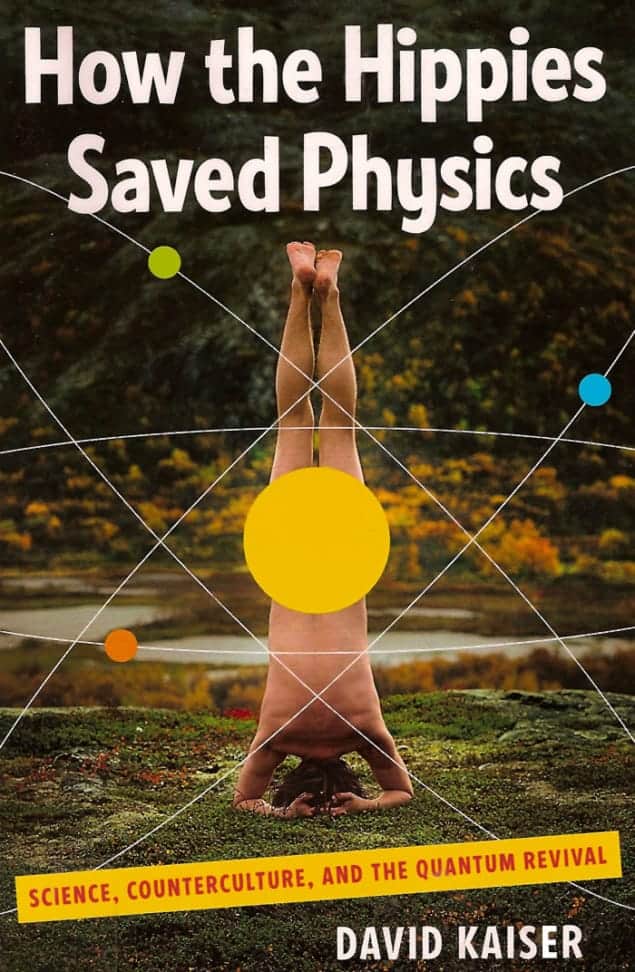Physics World‘s choice of the 2012 Book of the Year is How the Hippies Saved Physics by David Kaiser

A generation from now, 2012 may be remembered as the year when research on quantum fundamentals came of age. The awarding of the year’s Nobel Prize for Physics to two quantum-control pioneers, Serge Haroche and David Wineland, was a milestone in the field’s development, and with stunning new experiments on quantum measurement or entanglement appearing in Physics World‘s annual list of top “breakthroughs” four years in a row, more honours seem likely to follow.
Not that long ago, however, the accolades were not so forthcoming. Well into the 1970s and 1980s interest in fundamental aspects of quantum mechanics was largely confined to a handful of physics oddballs, many of whom combined their enthusiasm for Bell’s theorem and quantum entanglement with a penchant for psychedelic drugs and New Age philosophy. Their story is told in David Kaiser’s book How the Hippies Saved Physics – our pick for Physics World‘s 2012 Book of the Year.
To be eligible for the award, books had to be reviewed in the magazine in 2012, and also be well written, scientifically interesting and novel. How the Hippies Saved Physics scored highly in all three categories but particularly the last, thanks to its unusual choice of subject matter. Compared with the 1920s and 1930s, or the wartime years of the Manhattan Project, relatively little has been written about the physics of the late 1960s and early 1970s. Yet as Kaiser, an historian at the Massachusetts Institute of Technology, shows in his book, these were important years for the discipline. A shift in the public perception of scientific research, coupled with a sudden downturn in funding, meant that physicists who earned their PhDs in 1975 faced a very different environment from those who had graduated 20 years earlier. Throw in the era’s wider cultural upheavals, some groundbreaking work by the likes of John Bell and John Clauser, and – of course – lashings of LSD, and the result was an environment in which topics that had been dismissed as peripheral to “real” physics began to flourish. Kaiser’s book shows how some (not all!) of these ideas grew into the modern discipline of quantum-information theory.
How the Hippies Saved Physics is a rollicking good read and a worthy successor to our previous books of the year: Graham Farmelo’s The Strangest Man (2009), Anil Ananthaswamy’s The Edge of Physics (2010) and Lawrence Krauss’s Quantum Man (2011). However, it faced stiff competition from the other titles on our 10-strong shortlist, which includes books about molecular machines, science policy and the BP oil spill, plus an outstanding collection of science trivia.
To learn more about these shortlisted books – and hear Kaiser discussing his reasons for writing the winner – you can listen to our latest podcast, in which Physics World editor Matin Durrani and reviews editor Margaret Harris discuss their books of the year with host James Dacey.
Congratulations to Kaiser and the shortlisted authors, and happy reading to all in 2013!
- Buy How the Hippies Saved Physics now with a 30% discount for physicsworld.com readers (enter code WN227 at the checkout)



